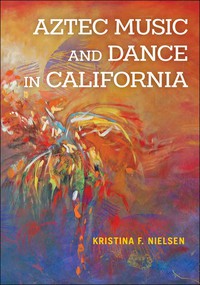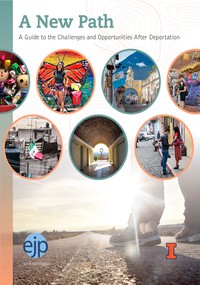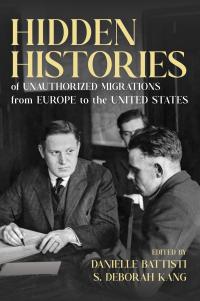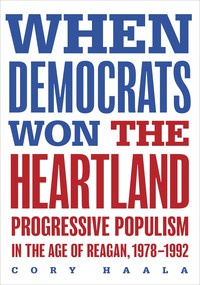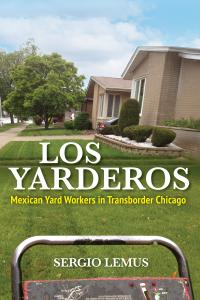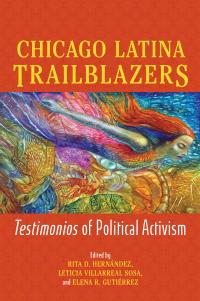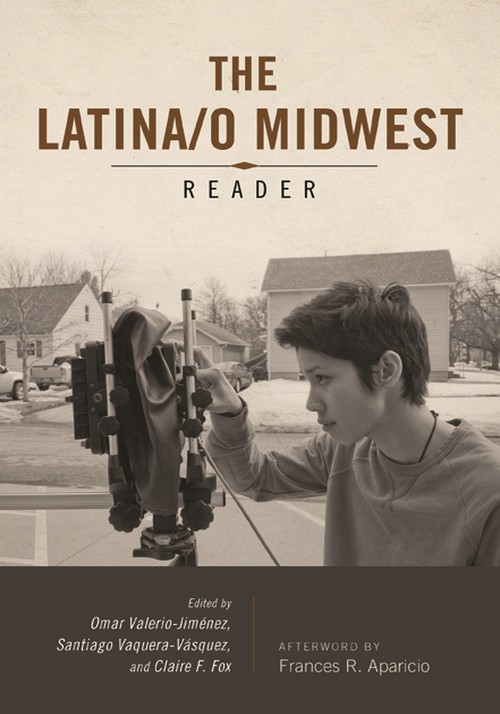
The Latina/o Midwest Reader
Cloth: 07/24/2017
About the Book
From 2000 to 2010, the Latino population increased by more than 73 percent across eight midwestern states. These interdisciplinary essays explore issues of history, education, literature, art, and politics defining today’s Latina/o Midwest. Some contributors delve into the Latina/o revitalization of rural areas, where communities have launched bold experiments in dual-language immersion education while seeing integrated neighborhoods, churches, and sports teams become the norm. Others reveal metro areas as laboratories for emerging Latino subjectivities, places where for some, the term Latina/o itself corresponds to a new type of lived identity as different Latina/o groups interact in shared neighborhoods, schools, and workplaces.Eye-opening and provocative, The Latina/o Midwest Reader rewrites the conventional wisdom on today's Latina/o community and how it faces challenges—and thrives—in the heartland.
Contributors: Aidé Acosta, Frances R. Aparicio, Jay Arduser, Jane Blocker, Carolyn Colvin, María Eugenia Cotera, Theresa Delgadillo, Lilia Fernández, Claire F. Fox, Felipe Hinojosa, Michael D. Innis-Jiménez, José E. Limon, Marta María Maldonado, Louis G. Mendoza, Amelia María de la Luz Montes, Kim Potowski, Ramon H. Rivera-Servera, Rebecca M. Schreiber, Omar Valerio-Jiménez, Santiago Vaquera-Vásquez, Darrel Wanzer-Serrano, Janet Weaver, and Elizabeth Willmore
About the Author
Omar Valerio-Jiménez is an associate professor of history at the University of Texas at San Antonio and the author of River of Hope: Forging Identity and Nation in the Rio Grande Borderlands. Santiago Vaquera-Vásquez is an associate professor of Hispanic Southwest studies at the University of New Mexico and the author of One Day I’ll Tell You the Things I’ve Seen: Stories. Claire F. Fox is a professor in the departments of English and Spanish and Portuguese at the University of Iowa and the author of Making Art Panamerican: Cultural Policy and the Cold War.Reviews
"This key book expands understanding of Latina/os outside of the traditional areas of the US. . . . A major addition to the histories of Latina/os and future Latina/o studies scholarship on the Midwest. . . . Recommended."--Choice"The Latina/o Midwest Reader certainly contributes to this nascent literature by bringing much needed attention to the struggles and contributions of Latinos in the Midwest."--Journal of Folklore Research
"The Latina/o Midwest Reader makes a valuable contribution to Latina/o studies by pushing the field to look beyond the East and West Coast model for the experiences of Latina/o communities. . . . Every educator in the Midwest, from pre-K to college, should read the book in order to understand the region in more of its complexity."--Missouri Historical Review
"The Reader offers something for everyone. . . . The research disrupts narratives that remove Latinos from history and from the region. . . . Current activists and allies can look to the volume for a history of resistance and a people's determination to live with dignity." --Middle West Review
Blurbs
"The Latina/o Midwest Reader is an engaging and much-needed collection of essays that examines historical and contemporary Latina and Latino place-making in the U.S. heartland. Valerio-Jiménez, Vaquera-Vásquez, and Fox have assembled a wide-ranging regional study of the field that is distinct in its cross-disciplinary scope with contributions from the social sciences, the humanities, and interdisciplinary studies. A valuable introduction to the old and new Midwest."—Mérida Rúa, editor of Latino Urban Ethnography and the Work of Elena Padilla
"The Latina/o Midwest Reader makes a vital contribution to Latina/o Studies in the United States, not merely by filing a proverbial gap in the literature, but by demonstrating that the multi-layered, multi-textured intersection of diverse historical and socio-political formations of Latinidad in this region supplies some of the necessary conceptual keys for understanding Latino identity, historicity, and place-making anywhere in the United States."—Nicholas De Genova, author of Working the Boundaries: Race, Space, and “Illegality” in Mexican Chicago

